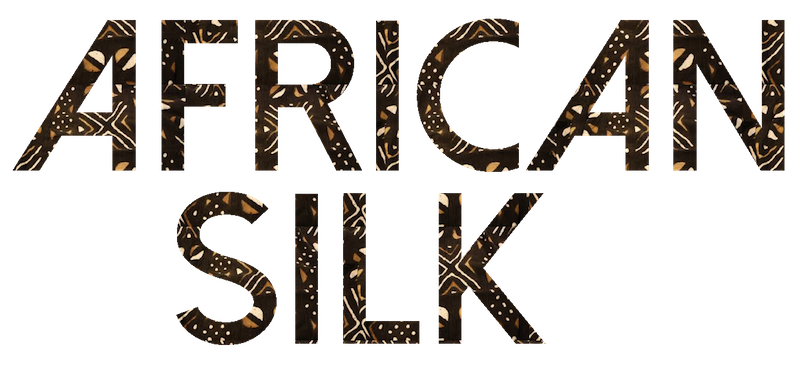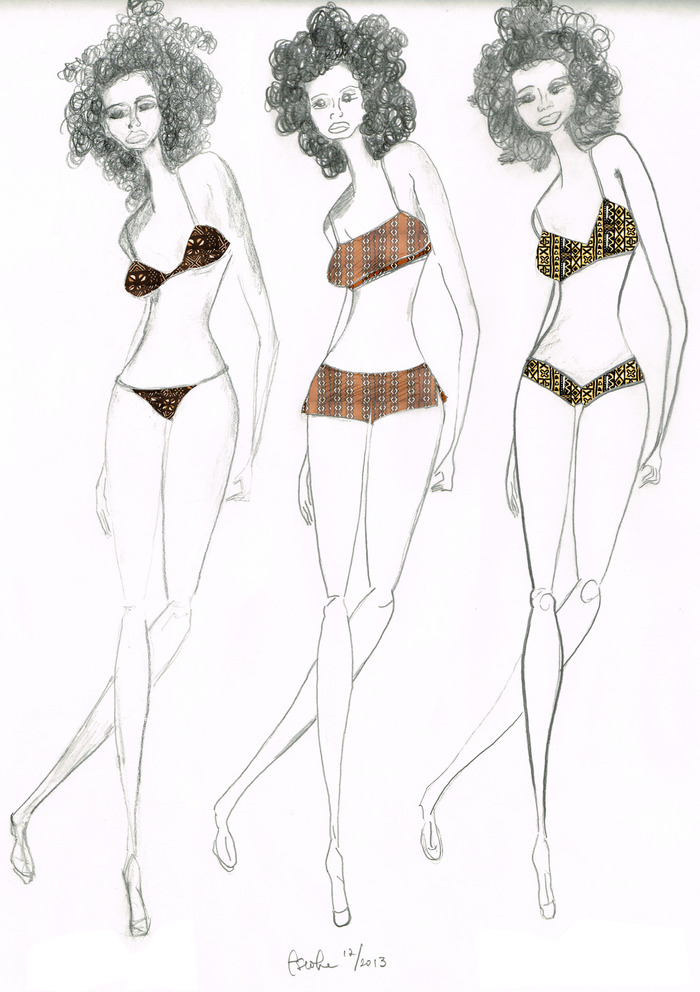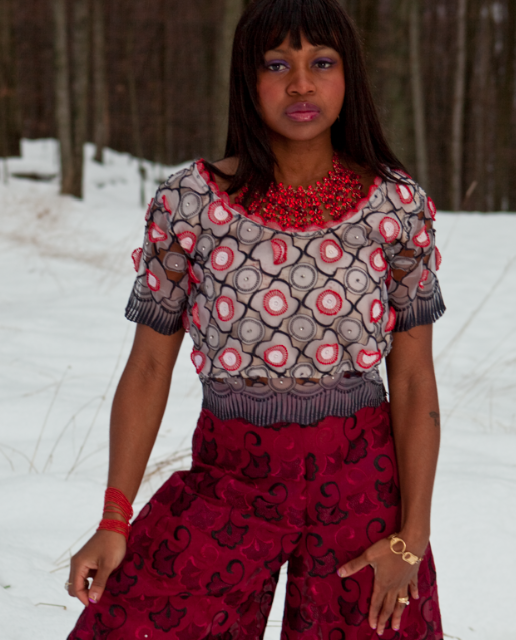Edoheart wants to fight African poverty and underdevelopment with a line of lingerie.
Notable artist turned entrepreneur Edoheart spotted the need for involving traditional textile arts in fighting poverty.
Courtesy of Wikipedia
AFRICAN SILK is a new fashion line that aims to provide business opportunity for traditional African textile artists.
Billions in aid pours into Africa, but it only produces limited and unbalanced progress, and a great many people on the continent are still struggling to overcome poverty.
But a new startup lingerie line aims to help change all that with a bralette and brief set featuring traditional African textile designs.
The AFRICAN SILK fashion line will premiere just one look to start– a bralette and brief set– but you can be sure it will be unique. “It’s pretty impossible to find African prints in silk,” says Edoheart. “We’re going to do it using the same traditional methods Africans have used for thousands of years.”
Silk lingerie is pretty standard fare. It feels soft against the body. But generally African print designs are made on cotton.
The AFRICAN SILK line is the invention of Edoheart or as she’s also known, Eseohe Arhebamen-Yamasaki.
Edoheart recalled learning that most African print fabrics on the market are not made by Africans. Even worse, such textiles are often made using materials and processes that destroy the environment and cause cancer.
Courtesy of Edoheart
AFRICAN SILK is a new fashion line that aims to provide business opportunities for traditional African textile artists.
“It just didn’t make sense to me that we would be killing ourselves with cancer, destroying the environment, and leaving Africans out of the global economy of textile design,” Edoheart said.
“I love African print in cotton,” she added. “Sure you can turn it into clothes but I want luxurious-feeling undies in silk!”
Yes. And how about your undies not give you cancer?
Photo credit: Taro Yamasaki. Courtesy of Edoheart
Edoheart’s new venture, The Style Diaspora, is producing a line of undies called AFRICAN SILK to help fight poverty in Africa and protect culture.
“I’ve always loved making clothes with African fabric. But if you look at some of the processes being used to make them, it’s really horrible,” Edoheart said. “This is something that’s going to make you feel at peace because you can be sure you supported the African economy, protected the environment, and your health all at the same time.”
The first AFRICAN SILK line will be produced in limited quantity and will be available from Edoheart’s new venture The Style Diaspora. Edoheart promises even more styles of clothing that are focused on solving problems in the world.
If you didn’t know African print was this important, that’s part of the point.
Courtesy of Edoheart
Edoheart plans to collaborate with local African artisans like Le Ndomo in Mali. They teach young people– who may not have had an opportunity for education– some technical expertise and how to run a business.
“I got really inspired when I worked for the United Nations,” said Edoheart. “As an artist, I knew there had to be a way to combine cultural arts with the sustainability movement.”
Job opportunities aren’t widely available in many Sub Saharan African countries, and that leads to crime and other social problems like terrorism.
During a trip to Africa, said Edoheart, “I was shopping in a huge fabric market. I asked where all the fabric came from. One of the managers of the shop told me, ‘China and Europe’. It just didn’t make sense for so many African people to be so poor and all their fabric to be from China and Europe especially when it’s supposedly African print fabric.
“Africans have lost the huge textile economy they used to have. I believe, as Nelson Mandela said, that, ‘Poverty is not an accident. Like slavery and apartheid, it is man-made and can be removed by the actions of human beings.'”
The AFRICAN SILK line is currently trying to meet its initial funding on Kickstarter: http://www.kickstarter.com/projects/1157985683/african-silk-fashion-line-saving-culture-fighting. There are less than 30 days remaining. If she meets her fundraising goal, Edoheart expects to have the first sets available online in May.
On Wednesday, Edoheart got an email from the owner of Le Ndomo saying he was going to travel to Bamako to pick up the sample silk she sent him.
“Its 146 miles for him to travel just to get the mail,” Edoheart said. “These are hardworking people who just need opportunities that involve their established culture. This project is a small step in the right direction and I hope people support it.”





